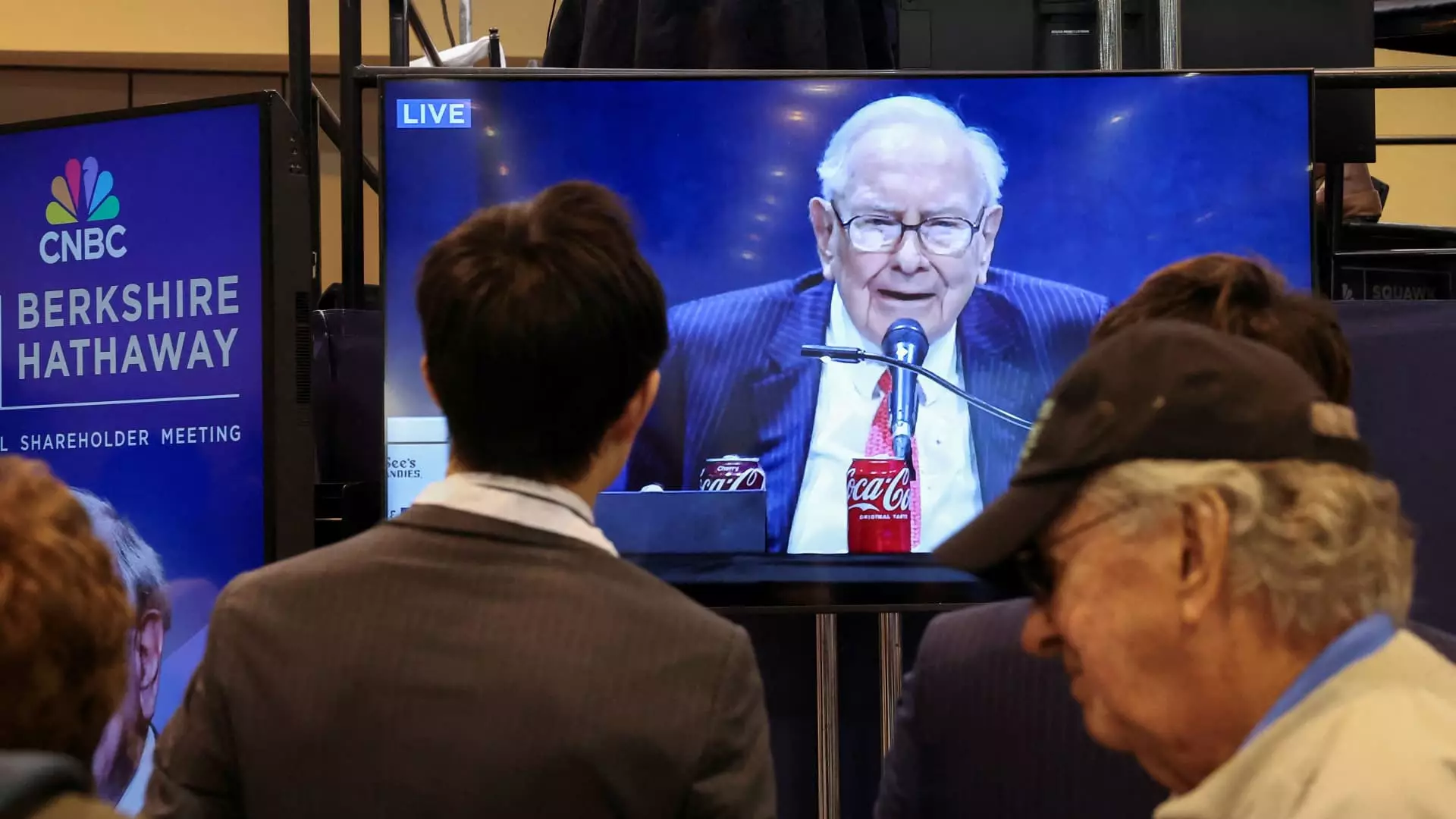Warren Buffett’s recent announcement about stepping down as CEO of Berkshire Hathaway set the financial world into a whirlwind of speculation. After orchestrating more than sixty years of extraordinary growth, Buffett’s designation of Greg Abel as the incoming CEO represents not just a milestone in leadership but also a pivotal moment in corporate history. This is a shift that, while met with a degree of unease, potentially ushers in a new era for the investment colossus. Amidst the weight of tradition, the announcement came as somewhat of a shock, but it is one that reflects Buffett’s careful planning and long-term vision for Berkshire.
Buffett, now 94, remains at the helm as chairman, smoothing the transition while granting Abel the reins starting January 1, 2026. This careful orchestration demonstrates Buffett’s understanding that true leadership is not merely about decision-making in times of crisis, but also about strategic succession planning. The timing of this announcement, made during Berkshire’s annual meeting in Omaha, signals a clear step into the future, reinforcing the notion that Berkshire Hathaway is equipped to continue thriving even beyond Buffett’s direct influence.
The Resilience of Berkshire Hathaway’s Portfolio
Despite the initial dip in stock prices post-announcement, it’s crucial to remember that Berkshire Hathaway under Buffett transformed from a struggling textile company into a formidable force encompassing myriad sectors, from insurance and manufacturing to energy and retail. This sprawling conglomerate now boasts a staggering market capitalization of nearly $1.2 trillion. It’s not solely Buffett’s prowess that defined this remarkable journey; the underlying strength of the companies within Berkshire’s portfolio plays an equally vital role.
The firm’s diverse business model has fortified it against economic downturns and market fluctuations. The recent 14% decline in operating earnings, stemming largely from significant losses in insurance underwriting due to natural disasters, doesn’t overshadow the resilience exhibited by other sectors. As Brian Meredith from UBS pointed out, the operational structure and core strategy of Berkshire will likely remain unchanged under Abel’s leadership, which offers reassurance to investors concerned about potential instability during this transition.
A Culture of Innovation and Stability
Warren Buffett’s signature approach has been rooted in a rich corporate culture that marries innovation with stability. He has imbued Berkshire with a long-term perspective, encouraging its subsidiaries to operate with a level of autonomy while promoting accountability. Transitioning to Greg Abel while retaining Buffett as chairman ensures that this culture persists, allowing for continuity in decision-making and operational philosophy.
Buffett’s mentorship of Abel is critical. While some may view a leadership change through a lens of skepticism, it’s prudent to reflect on the unique position of Berkshire: it is resilient due to its foundational ethos. With Buffett remaining in a guiding position, shareholders can be confident that the values which propelled the company’s prosperity are not vanishing with his stepping back.
The Investor’s Perspective: Why Berkshire Remains Attractive
For investors, the immediate reaction to Buffett’s announcement may involve caution, especially reflected in the stock price fluctuations. However, as sentiments stabilize, it’s essential to assess where Berkshire stands within the larger investment landscape. For those seeking a safe harbor amidst economic volatility, Berkshire Hathaway presents an appealing opportunity. The combination of its robust insurance operations and diverse portfolio equips investors with both security and potential for growth.
Moreover, with Buffett’s legacy rooted deeply in sound financial principles and ethical investments, the company’s long-term prospects under Abel’s guidance can inspire confidence. Those who see beyond initial trepidation recognize that Buffett’s departure, while melancholic, is not indicative of decline but rather a novel pivot toward a future grounded in adaptability and continuing success.
A Lasting Legacy
Ultimately, Warren Buffett’s decision to elevate Greg Abel reflects that he is already thinking beyond his tenure. Where critics may focus solely on potential instability, others with a more optimistic lens can discern a strategic evolution. This transition indicates a deliberate effort to nurture the next generation of business leaders within one of the world’s most scrutinized companies. The changes ahead could prove transformative, empowering Berkshire Hathaway to thrive on an unprecedented level while preserving the legacy of its iconic leader.

